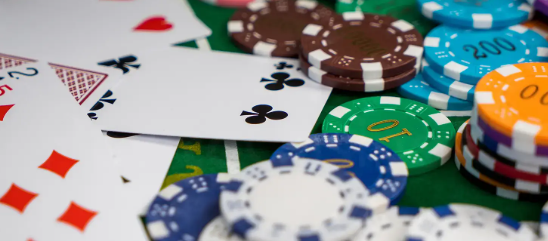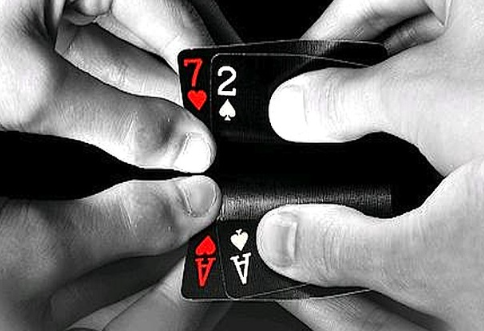Strategy for poker beginners: how to avoid common poker mistakes
- How to save chips until the end of the game at the first table? A few tips will help beginners not to repeat standard mistakes.
*Don’t play every hand. Yes, the temptation is great. You have finally received your two cards, and you want to dive into the vortex of the game as soon as possible. But don’t rush! One of the main mistakes of beginners is excessive activity. Play only hands that have real potential.
*Don’t chase the bluff. Bluffing in the movies looks impressive, but in real life it only works when you are confident in your strategy and your opponents. Frequent bluffing can quickly lead to the loss of the pot. Understand when to take risks and when to wait.
*Watch your position at the table. The later you make a move, the more information about your opponents’ actions. Be especially careful in the early position – here the risk of unreasonable bets is higher.
*Control your bankroll. Never play with money that you are not ready to lose and lose completely. Take this rule as seriously as possible, and let this be your motto in any game for money! Your emotional state also depends on it. Don’t turn admiration into a financial disaster. Set yourself a limit and stick to it, even when it seems that luck is just around the corner.
*Do not underestimate your opponents. Everyone at the table is a rival, and they want to win just as much as you do. Some may look inexperienced, impulsive, but often this is just a mask. Treat each player with caution. Do not build a strategy based on the fact that your opponents cannot have a strong hand.
*Always be patient and patient. Poker is a marathon, not a sprint. If you have fallen into a series of losses, do not immediately try to win everything back. Patience and a cool mind will always help you get back into the game. The main thing is not to give in to emotions and take your time.

*Analyze the behavior of other players. Observation will help you understand their strategy and predict decisions. For example, an instant call often betrays uncertainty in one’s own cards.
*Don’t forget to rest. Playing to exhaustion can lead to mistakes, even for professionals. Fatigue and reduced concentration are one of the main enemies at the table. Take breaks, give yourself time to recover, and your chances of success will increase significantly.
The importance of table position
*Although you may not immediately guess, but the position at the table is one of the very important aspects in the game of poker, which is often underestimated by beginners. Knowing when and after whom you will make a move allows you to control the game and make more informed decisions.
This is why position is important:
- Information advantage.
Passing later players see the actions of others and can better assess the strength of their cards. This gives more opportunities for a smart bet or bluff.
*Control over the bank. Being in the last positions, it will be easier for you to decide whether you should increase the pot or, on the contrary, keep the bets low, avoiding unnecessary risk.
*Maneuverability. In late positions, players have more freedom to maneuver — they can bluff or call more often, again avoiding unnecessary risk.
Bluff: when and how to use it correctly

*A bluff in poker is like a secret weapon that should be used only at the right moment. A properly executed bluff can force your opponents to call, even if their hands are significantly stronger than yours. But not every situation is suitable for such a risk, and it is important to know when and how to do it. Let’s consider in more detail how to bluff:
*Position at the table. The closer you are to the end of a round of bidding, the more you know about the actions of other players. In late positions, you can bluff more often, because it is already more noticeable who among the opponents is inclined to fold.
*How your opponents see you If you play cautiously and don’t risk often, your bluffs will look more convincing. On the contrary, if you are constantly bluffing, people will quickly notice this and stop trusting your bets altogether.
*The size of the jar. Bluffing works best when the pot is small. In such cases, opponents are in no hurry to risk their chips to pursue a small advantage. Therefore, a bluff is your chance to steal the pot, even if you don’t have a strong hand.
*It is important that the bluff is a continuation of your previous actions. If you behave aggressively from the very beginning of the hand, your bluff will look more convincing. The main thing is not to change your style abruptly, otherwise your opponents will suspect you, and all your efforts will be in vain.
Tips from experienced:
*There is an opinion that success often comes to those who know how to listen, observe and learn from other people’s and their own mistakes. And then, at the end of our journey through the poker world, here are some wise tips from the world’s leading players that you might find useful:
*Don’t open your bluffs. Professionals never show their bluffs. This does not mean that they do not bluff, but in games they do not open their cards after successful bluffs. The less information you provide about yourself, the more difficult it is to resist you.
*Know how to fold strong hands. Don’t be afraid to fold strong cards. Even if they seem powerful, the situation on the table may not be in your favor. If there are more than three players at the table and there are many cards of the same suit on the board, it is important to be ready to give up your aces.
- Do not confuse success with luck.
Experienced players know that poker is not a game of chance, but a game of distance. Even professionals can lose a series of hands, but in the long run it is the right decisions that bring them more victories. The main thing is to learn from mistakes and concentrate on the quality of the game, not on immediate results.
*Play like a pro. Real professionals perceive poker as their main activity. They regularly play and work on improving their skills, regardless of mood. Develop the habit of regularly engaging in theory and practice in order to finally achieve success.
*Make friends around poker. Over time, a fresh look is lost, prejudices and insecurity appear, and often there is not enough objective opinion from the outside to point you to faces that you might not notice. The presence of several, and preferably more, experienced comrades nearby can radically change the situation.